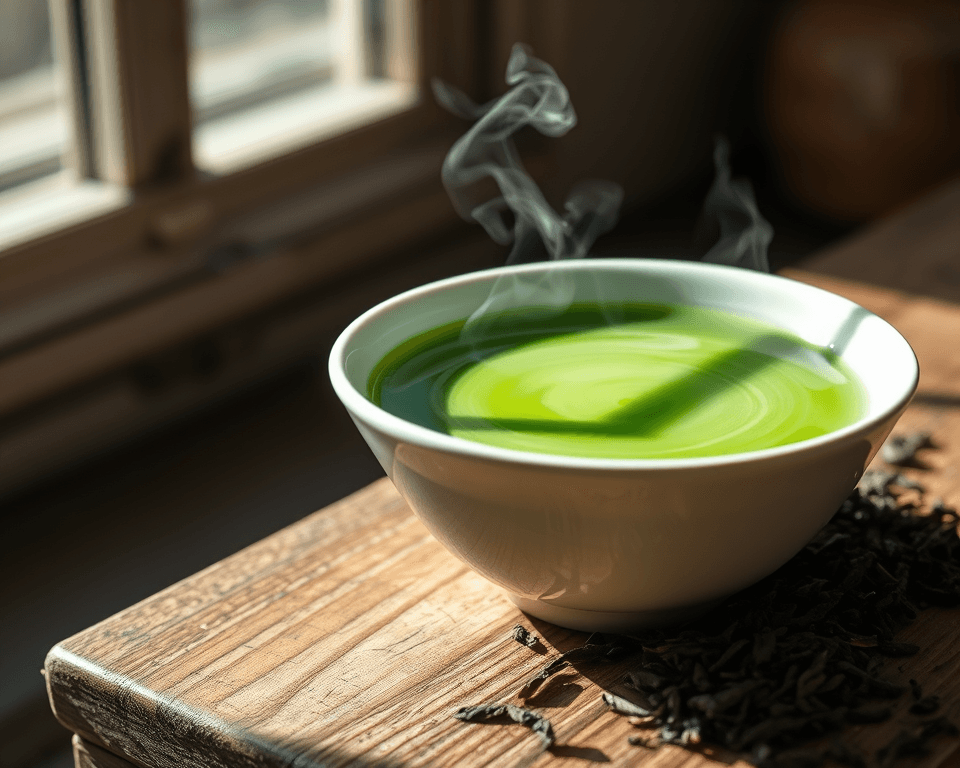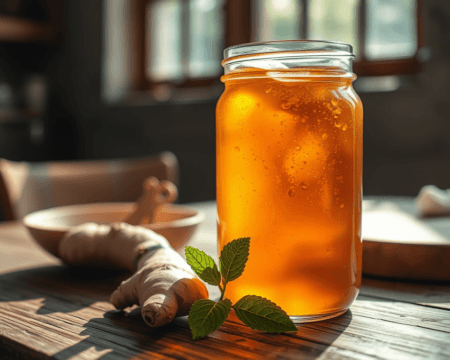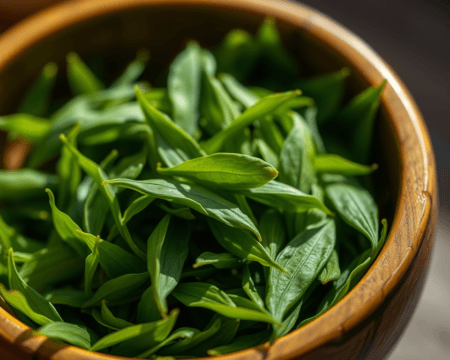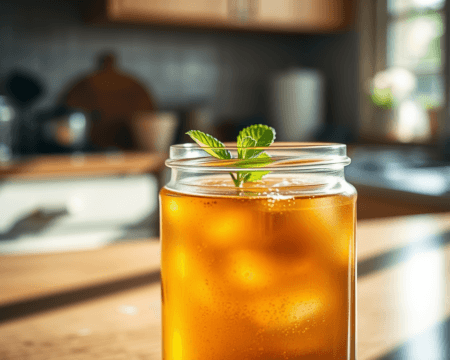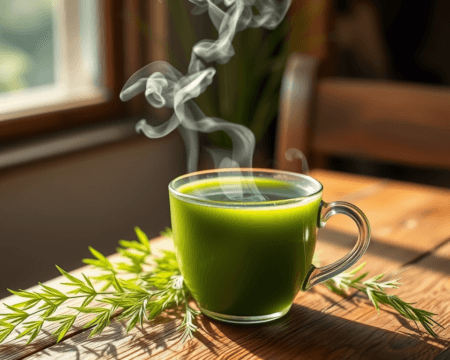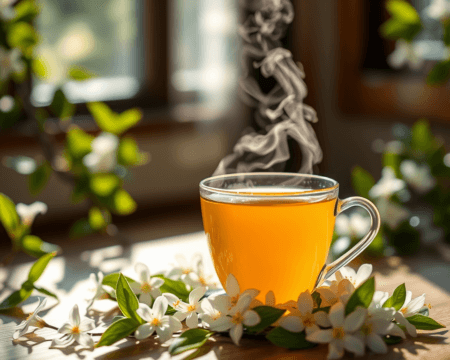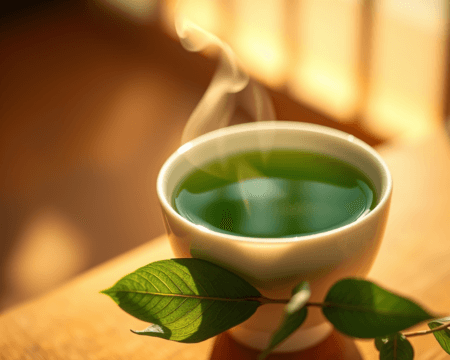You’re sipping on your favorite tea, feeling relaxed and refreshed, but then a thought crosses your mind: is tea a juice? Let’s break this down. As a self-proclaimed tea enthusiast, I’ve spent more time thinking about this question than I care to admit. But here’s the kicker: understanding the line between tea and juice isn’t just about classification; it’s about appreciating the cultural significance and health benefits of these two popular beverages.
Key Takeaways
- Juice typically comes from the direct extraction of fruits or vegetables, while tea is an infusion of leaves, herbs, or other plants.
- The nutritional profiles of tea and juice can be starkly different, which influences their health benefits and culinary applications.
- Cultural traditions surrounding tea can vastly influence its perception compared to juice, enriching its status beyond mere consumption.
Defining Juice: What Constitutes This Beverage?
Characteristics of Juice
So, what’s the deal with juice? At its core, juice is a liquid extracted from fruits or vegetables. You’re generally looking at pure juice, no fillers or extraneous garbage. The nutritional content of juice largely hinges on the type of fruit or vegetable it comes from. Think of orange juice packed with Vitamin C or carrot juice loaded with beta-carotene.
Juice can come in different forms:
– Natural juices: These are made from 100% fruit or vegetable extracts without any added sugars or artificial flavorings.
– Concentrated juices: These are made by removing water from the juice, only to have it reconstituted later with water. It’s not exactly the same as pure juice, but it gets the job done.
– Juice blends: Mixing different types of juices can alter flavor profiles and nutritional content. Ever tried a carrot-orange blend? It’s pretty great!
The Role of Ingredients in Juice Definition
The real magic happens when we start talking about juice ingredients. If you’re loading up your drink with additives, sugars, or artificial flavors, congratulations! You might be sipping a sugary cocktail rather than pure juice. Authentic juice enhances ingredient transparency—meaning you should know exactly what’s in your glass. Juice made from fruits and veggies is celebrated for its health impacts, while products filled with added sugars often lead to misconceptions about juice’s health benefits.
Exploring Tea: Ingredients and Preparation Methods
Common Ingredients in Tea
Now, let’s shift gears and talk about tea. The primary star ingredient here is tea leaves, but hold on! This isn’t the only player on the field. Herbal teas incorporate various herbs and plants, bringing in exciting flavors and benefits. Each type of tea—green, black, oolong, or herbal—offers a unique composition.
Green tea, for example, packs a punch when it comes to antioxidants. On the other hand, herbal teas like chamomile often boast a caffeine-free profile, making them perfect for winding down. You see, tea is so versatile you could dedicate an entire bookshelf just to the different types!
Tea Preparation Techniques
Let’s dig into how we prepare tea. Brewing methods range dramatically, from traditional steeping methods to cold brews. You’ve got to think about the temperature of the water and how long you let those leaves or herbs steep. A general rule? Most green teas are best brewed at lower temperatures, around 175°F for about 2-3 minutes. Black tea? Crank it up to boiling for about 3-5 minutes.
When you step back and consider traditional tea service—ceremonies from Japan and England—the whole routine around making tea includes its own set of cultural rituals. Isn’t it incredible how the preparation can change your appreciation of the beverage itself?
Tea vs. Juice: A Comparative Analysis
Nutritional Differences and Health Benefits
Now here’s where things get juicy—pun intended! Nutritionally, tea and juice have distinct advantages. Juices are often high in vitamins and can provide a quick energy boost, but they can also come with a sugar rush that your body might not appreciate later.
On the flip side, tea is a champion when it comes to hydration and antioxidants. Just picture this: a cup of green tea can give you a solid dose of catechins, which are beneficial for metabolism and can aid in weight loss. Add in a splash of lemon juice, and you’re upping your Vitamin C game too!
Let’s break down some quick comparisons in a table:
| Beverage Type | Nutritional Highlights | Health Benefits |
|---|---|---|
| Juice | High in vitamins; sugar content varies | Quick energy; hydration |
| Tea | Antioxidants; low calorie | Metabolism boost; relaxation |
Common Misconceptions About Tea and Juice
Don’t get snared by myths, though! Here’s a truth bomb: many people confuse juice as being universally healthy because it’s “natural.” But what you might not realize is that many store-bought options can pack a sugar punch that rivals soda.
Conversely, there’s this idea floating around that tea lacks flavor variety. Ever had a rocking chai latte? Trust me, you can seriously mix it up with flavors, herbs, and spices to create a world of taste experiences.
Cultural Perspectives on Tea
Tea Traditions Around the World
Let me tell ya—tea isn’t just a drink; it’s an experience! Across the globe, tea rituals run deep. In Japan, you’ve got the elegant tea ceremony where every detail is meticulously curated. Think of the aesthetic—the teacups, the quiet atmosphere—it all adds to the charm. Meanwhile, in England, afternoon tea is a social event characterized by its delightful sandwiches and pastries alongside steaming cups of Earl Grey.
Tea isn’t just something you drink; it’s something you live. Those customs and traditions infuse tea with meaning and memories, setting it apart from plain ol’ juice.
The Evolution of Tea’s Perception
Over the years, tea has evolved from a simple beverage to a full-on lifestyle for many. Walk into any trendy café today, and you’ll find matcha lattes, bubble tea, and herbal blends on the menu. With influencers and wellness gurus promoting the benefits of tea, it’s fascinating to see how its image transforms over time, making it a fashionable choice for health-conscious folks.
The Herbal Tea Phenomenon: Juice-Like Qualities
What Are Herbal Teas and Their Ingredients?
Herbal teas, often confused with traditional teas, are the underdogs in this conversation. They’re brewed from herbs, flowers, and fruits, and thus, don’t contain any actual tea leaves—which means, they’re usually caffeine-free! Whether you’re sipping on peppermint or chamomile, each herbal infusion packs its own unique flavor, alongside personal health benefits like relaxation or digestion boosts.
Nutritional and Health Benefits of Herbal Teas
Let’s not skirt around the issue—herbal teas can be a great alternative to juices. They often bring calming properties and can be a soothing remedy for various ailments, stacking up beautifully against juices that might lean on the sugar side of things. You can find blends targeting relaxation, like valerian root tea, or even teas that help with digestion, like ginger tea.
In summary, whether you’re leaning towards juice or pouring yourself a cup of herbal tea, both have their spaces in a balanced diet. It’s all about what benefits you’re craving at that moment!
So, next time you’re pondering over your beverage of choice, just remember: while tea and juice both offer awesome experiences, they each come with their own unique set of characteristics that give them their rightful places in our hearts—and our cups.
Frequently Asked Questions
What are the main differences between juice and tea?
Juice is made by extracting the liquid from fruits or vegetables, capturing their natural sweetness and nutrients. In contrast, tea is brewed by infusing leaves, herbs, or plants in hot water, which extracts flavors and beneficial compounds without the sugars found in juice.
Which is healthier, juice or tea?
The health benefits of juice and tea can depend on individual needs. Juice offers a quick source of vitamins but can be high in sugar. Tea, particularly herbal or green varieties, is usually low in calories and rich in antioxidants, making it a valuable choice for hydration and overall wellness.
Can I use juice and tea together in recipes?
Absolutely! Mixing juice and tea can create refreshing beverages. For instance, iced tea with a splash of citrus juice, or herbal tea paired with fruit juice, can enhance flavor while adding unique nutritional benefits.
Are there any types of tea that are better for specific health benefits?
Yes, different types of tea serve various health purposes. For example, green tea is known for its antioxidant properties, chamomile tea is often used for relaxation, and ginger tea can aid digestion. It’s essential to choose tea based on your specific health goals.
How should I store juice and tea for maximum freshness?
Freshly made juice and brewed tea should be stored in airtight containers in the refrigerator. Juice is best consumed within 48 hours, while tea can last up to a week. Avoid exposing either to heat or sunlight to maintain their flavor and nutritional value.
Can I make juice from tea leaves?
While traditional juice comes from fruits or vegetables, you can create a refreshing beverage by steeping tea leaves and combining them with fresh fruit or fruit puree, effectively blending the flavors of both tea and juice in one drink.
What cultural traditions surround tea that influence its consumption?
Tea holds significant cultural value in various countries, such as the Japanese tea ceremony, which emphasizes mindfulness and artistry, or British afternoon tea focused on social interaction. These customs elevate tea beyond mere consumption, often embodying rituals and social gatherings.
Is it possible for juice and tea to interact with medications?
Certain juices, like grapefruit juice, can interact with medications by affecting how they are metabolized. While tea is generally safe, it’s best to consult with a healthcare professional regarding interactions with any medications you are taking.
How can I choose high-quality tea or juice products?
When selecting tea, look for whole leaves or loose-leaf options, as they typically have better flavor and nutrients. For juice, opt for 100% pure juice with no added sugars or preservatives to ensure you’re getting the most health benefits.




